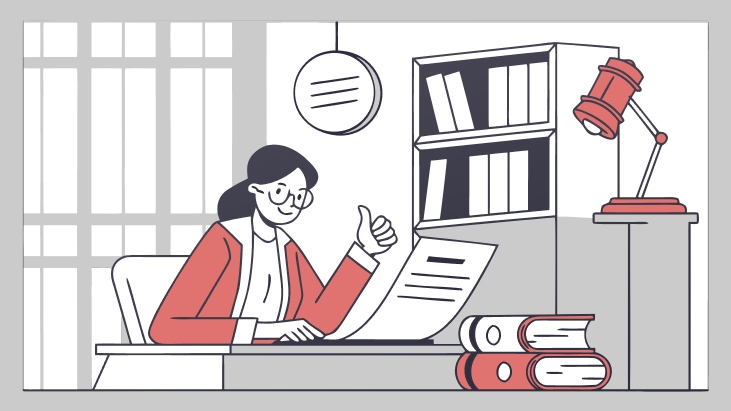in 2025, Canada’s mortgage market is at a crossroads as over one million homeowners face renewals—with many bracing for higher monthly payments and tighter budgets. In this post, we’ll explore the key differences between simply renewing your mortgage and opting to refinance, helping you understand which path might better suit your financial circumstances in today’s shifting economic landscape.
What's the Difference Between a Mortgage Renewal and a Mortgage Refinance?
Ritika and Aman bought their home three years ago with a 2.8% fixed-rate mortgage. Now, as their term approaches its end, they're debating whether to simply renew with their current lender or refinance to access some equity so they can finish their basement. Like Ritika and Aman, many homeowners face this decision, especially in today's higher interest rate environment.
Mortgage Renewal: The Simple Route
When your mortgage term ends but you haven't fully paid off your home, you'll need to renew your mortgage for another term. Think of it like extending your existing mortgage agreement. During a renewal, you simply continue with a new term, potentially at a different interest rate. Your amortization period continues from where you left off, and there are typically no legal fees or additional qualifying requirements if you stay with your current lender.
With the dynamic rate environment, most lenders are heavily competing for business, giving homeowners an advantage when it comes to renewal time. Rather than accepting the renewal proposed by your lender, you could use your renewal as an opportunity to shop around for a better rate or better mortgage product. In fact, as of November 2023, the stress test, which required homeowners to qualify at a higher mortgage rate, was eliminated, making it easier to qualify and switch lenders at renewal.
Mortgage Refinancing: Making Strategic Changes
Refinancing is more complex than a renewal but offers greater flexibility.
Take Lisa's story: She had a mortgage at 4.5% but also carried $30,000 in credit card debt at 19.99% and a car loan at 7%. By refinancing her mortgage, she used the equity in her home to borrow and pay off those high-interest debts. She lowered her overall monthly payments by $800 and saved thousands in interest charges. While her mortgage amount increased, consolidating all debts into one lower-interest mortgage payment significantly improved her monthly cash flow.
Or consider John and Emma, who bought their home for $600,000 five years ago with a $480,000 mortgage. When their property value increased to $800,000, they refinanced to access $100,000 of their equity at 5.5% to build an income suite in their basement. This was much cheaper than using a personal line of credit at 9% or renovation financing at 12%. The rental income from their new basement suite now helps offset their increased mortgage payment.
Renew or Refinance your Mortgage? Key Differences at a Glance
Timing and Process
A renewal occurs at the end of your mortgage term, requiring minimal paperwork. Refinancing can happen at any time, though doing so mid-term might incur penalties. Refinancing involves breaking your current mortgage contract to create a new one, requiring full requalification under current lending standards.
Legal Requirements and Costs
Renewal typically requires just signing new documents with your current lender. Refinancing requires new legal work, including title changes and registration, requiring a real estate lawyer's services. Expect to pay legal fees ($1,300-1,800), possible prepayment penalties if breaking your term early, and other administrative costs. However, the benefits of consolidating your debts or getting a more attractive mortgage rate, may significantly offset any costs.
Strategic Reasons to Refinance your mortgage
Beyond home renovations and debt consolidation, refinancing can make sense for various life situations. The Rodriguez family, for example, refinanced their home to access $50,000 for their daughter's medical school tuition. While this increased their mortgage payments, they avoided higher-interest student loans.
Some homeowners, like Maria, have used refinancing to access equity for investment opportunities. She leveraged $75,000 in home equity as a down payment on a rental property, using the rental income to offset her increased mortgage payments.
When Refinancing or Renewing your Mortgage Makes Sense
Renewal Makes Sense When:
You're satisfied with your current mortgage structure and simply want to continue with potentially different rates. It's also ideal if you want to avoid legal fees and additional qualification requirements.
Refinancing Makes Sense When:
- You want to consolidate higher-interest debts into your mortgage
- You need to access equity for home improvements that will increase your property value
- You have significant expenses coming up (education, investment opportunities)
- You want to significantly change your mortgage terms or take advantage of much lower rates
Frequently Asked Questions (FAQs):
Q: Can I negotiate rates during a renewal?
A: Yes, you can negotiate with your current lender or shop around for better rates, even during a renewal.
Q: What's the maximum equity I can access through refinancing?
A: You can usually refinance up to 80% of your home's appraised value, minus your current mortgage balance.
Q: Can I refinance with a different lender?
A: Yes, you can refinance with any lender, but you'll need to qualify under their specific criteria.
At Deeded, we help homeowners navigate the closing of your mortgage switch or mortgage refinancing with confidence. Our real estate lawyers can review your current mortgage terms, explain your options, and handle all legal aspects of either process. Whether you're simply renewing or considering a refinance, we ensure the process is smooth and your interests are protected.
Remember, while a renewal is generally straightforward, refinancing is a more significant financial decision that requires careful consideration of costs, benefits, and long-term implications. Understanding these differences helps you make the choice that best suits your financial goals and circumstances.
Unlock Your Seamless Closing Experience
Your Journey to a Worry-Free Closing Starts Here!



